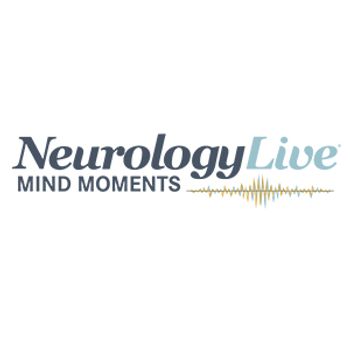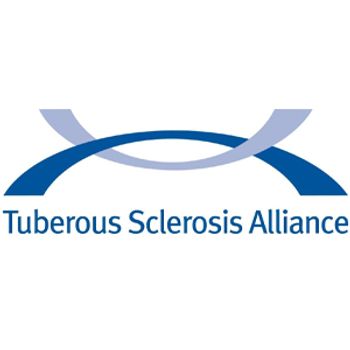
Neurology News Network for the week ending June 27, 2020.

Neurology News Network for the week ending June 27, 2020.

Take 5 minutes to catch up on NeurologyLive's highlights from the week ending June 26, 2020.

Worsened clinical outcomes for patients with MS due to an increase in comorbidities could provoke the need of greater management of them in the clinical care setting.

"Mind Moments," a podcast from NeurologyLive, brings you an exclusive interview with Bryan Davis, PsyD, MS.

Fintepla, marketed by Zogenix, will be available for prescription for the rare pediatric epilepsy syndrome beginning in July 2020 through a REMS program.

A whole-patient approach to management, coupled with new, more targeted treatments, may help reduce the incidence of medication overuse headache.

The Medtronic device is the only DBS system that is eligible to be used for both 3T and 1.5T full-body MRI scans, with the first implant procedure scheduled at Mayo Clinic.

Preliminary findings from a retrospective sample series in the Bronx, New York.

In part 1 of this interview, the associate director of the Center for the Aging Brain at Montefiore Medical Center discussed how she adapted quickly to optimizing telemedicine for elderly patients with Alzheimer disease and cognitive decline.

The neurologist at Cleveland Clinic’s Mellen Center for Multiple Sclerosis and co-principal investigator of the CAVS-MS study details the specific reasons for examining central vein sign as a biomarker.

The findings advance the translation of soft robotic exo-suits from the laboratory to the clinic and may motivate future controlled efficacy trials.

The clinical research director at the UCSF Multiple Sclerosis Center discussed the efficacy of inebilizumab (Uplizna; Viela Bio) and biomarker data observed in the N-Momentum trial in NMOSD.

Biomarkers in the cerebrospinal fluid and blood could hold the key to early diagnosis of Alzheimer disease.

In part 2 of this interview, Matthew Robbins, MD, director of the Neurology Residency Program at Weill Cornell Medicine, describes the lessons he and his residents have learned during the COVID-19 pandemic and how they'll impact the future of care.

The partnership will combine 2 databases with robust historical data in hopes of empowering both research and physician communities and ultimately improving clinical care for patients with tuberous sclerosis complex.

MedRhythms’ digital therapeutic platform serves as a digitized version of rhythmic auditory stimulation that is sensor-automated and music-based.

The neurologist at Mayo Clinic in Phoenix, Arizona, detailed whether her and colleagues recent study results on ubrogepant aligned with previous study findings.

New drug classes and formulations may help hold off breakthrough activity as the research community works to optimize levodopa delivery and absorption.

Compared to participants with ≤1 healthy lifestyle factor, the risk of developing Alzheimer disease was 37% lower in those with 2 or 3, and 60% lower in those with 4 or 5 healthy lifestyle factors.

The “time is brain” mantra continues to drive innovation in a specialty that will not settle for mediocrity.

The clinical research director at the UCSF Multiple Sclerosis Center shared his perspective on the recent FDA approval of inebilizumab (Uplizna; Viela Bio) for NMOSD.

Preliminary results showed that SRP-9001 is associated with clinically meaningful improvement that is greater than that observed with standard-of-care treatment, including corticosteroids.

The internal medicine resident physician at Montefiore Health System offers insight into the combined use of CGRP medications and Botox to optimize migraine prevention in patients who have inadequate response with Botox alone.

The data, from the phase 3 COMET trial, will be the basis for global regulatory submissions in the second half of 2020, according to manufacturer Sanofi.

The Women's Alzheimer's Prevention Center becomes the first medical clinic in the US to offer a women-specific center for Alzheimer disease prevention, research, and caregiving support.

In Part 1 of this interview, Matthew Robbins, MD, director of the Neurology Residency Program at Weill Cornell Medicine, shares his experience caring for headache patients in the epicenter of the coronavirus 2019 pandemic.

Neurology News Network for the week ending June 20, 2020.

The senior VP of Global Health Economics and Outcomes Research and Epidemiology at Biohaven Pharmaceuticals discussed the findings from a poster presentation on the economic impact of migraine disability at AHS 2020.

Take 5 minutes to catch up on NeurologyLive's highlights from the week ending June 19, 2020.

The clinical research director at the UCSF Multiple Sclerosis Center discussed the anticipated impact of the recent FDA approval of inebilizumab (Uplizna; Viela Bio) for NMOSD.